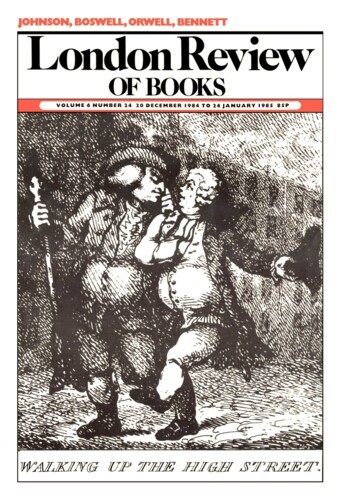Socialism without Socialism
Peter Jenkins, 20 March 1986
Mrs Thatcher’s two election victories have prompted a debate on the left at the bottom of which lurks the question: is socialism dead? There are several prongs to the case put forward by the ‘new revisionists’ who, in contrast to the Gaitskell-Croslandite revisionists of the past, are not right-wingers seeking to save the Labour Party from socialism but, for the most part, Marxists who have found it necessary to make a fundamental reappraisal of the socialist project. Their writings appear chiefly in Marxism Today, the Communist Party’s maverick intellectual journal, and the most celebrated of the ‘new revisionists’ is Eric Hobsbawm, whose Marx Memorial Lecture ‘The Forward March of Labour Halted?’ became their seminal text.





